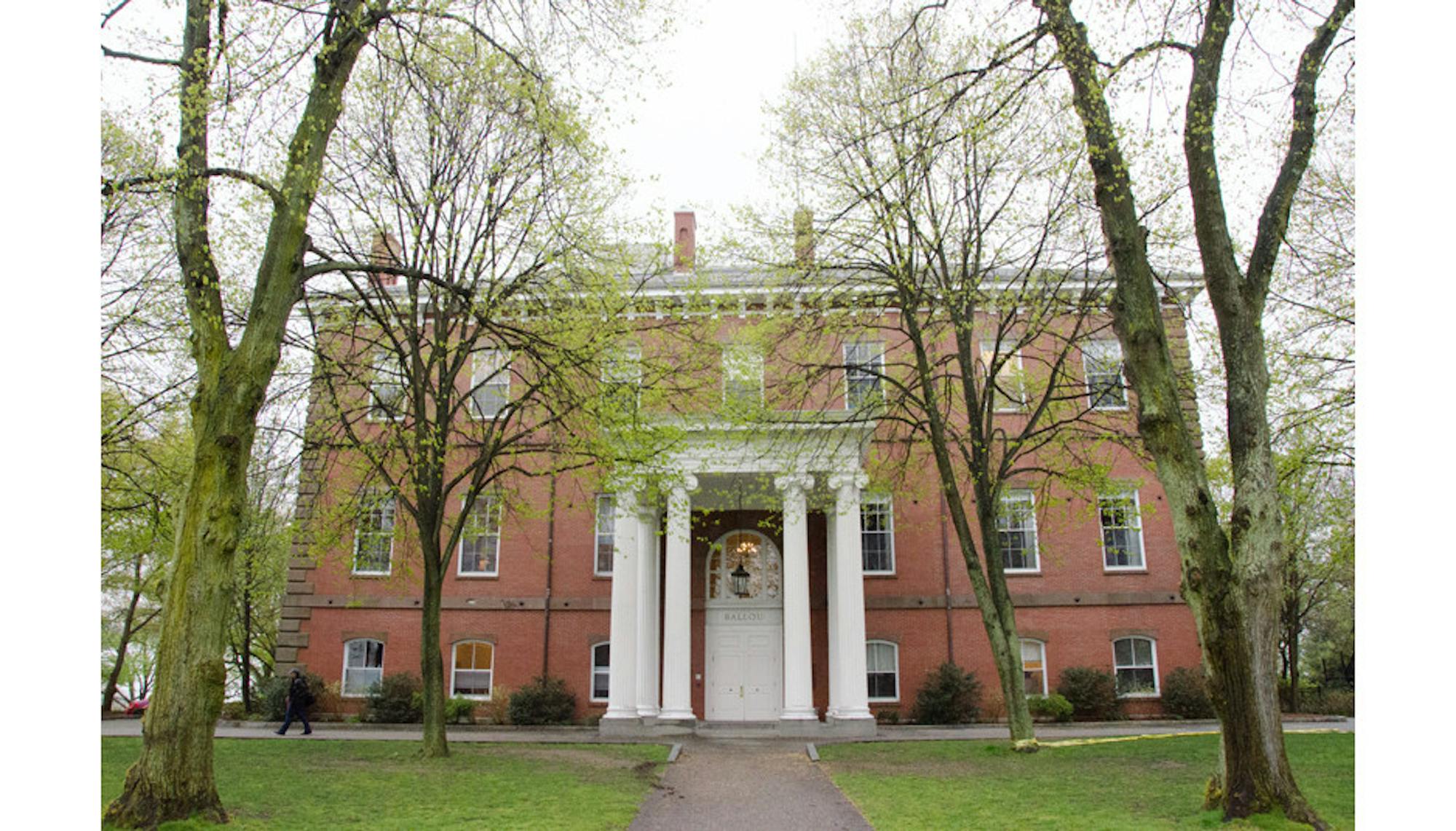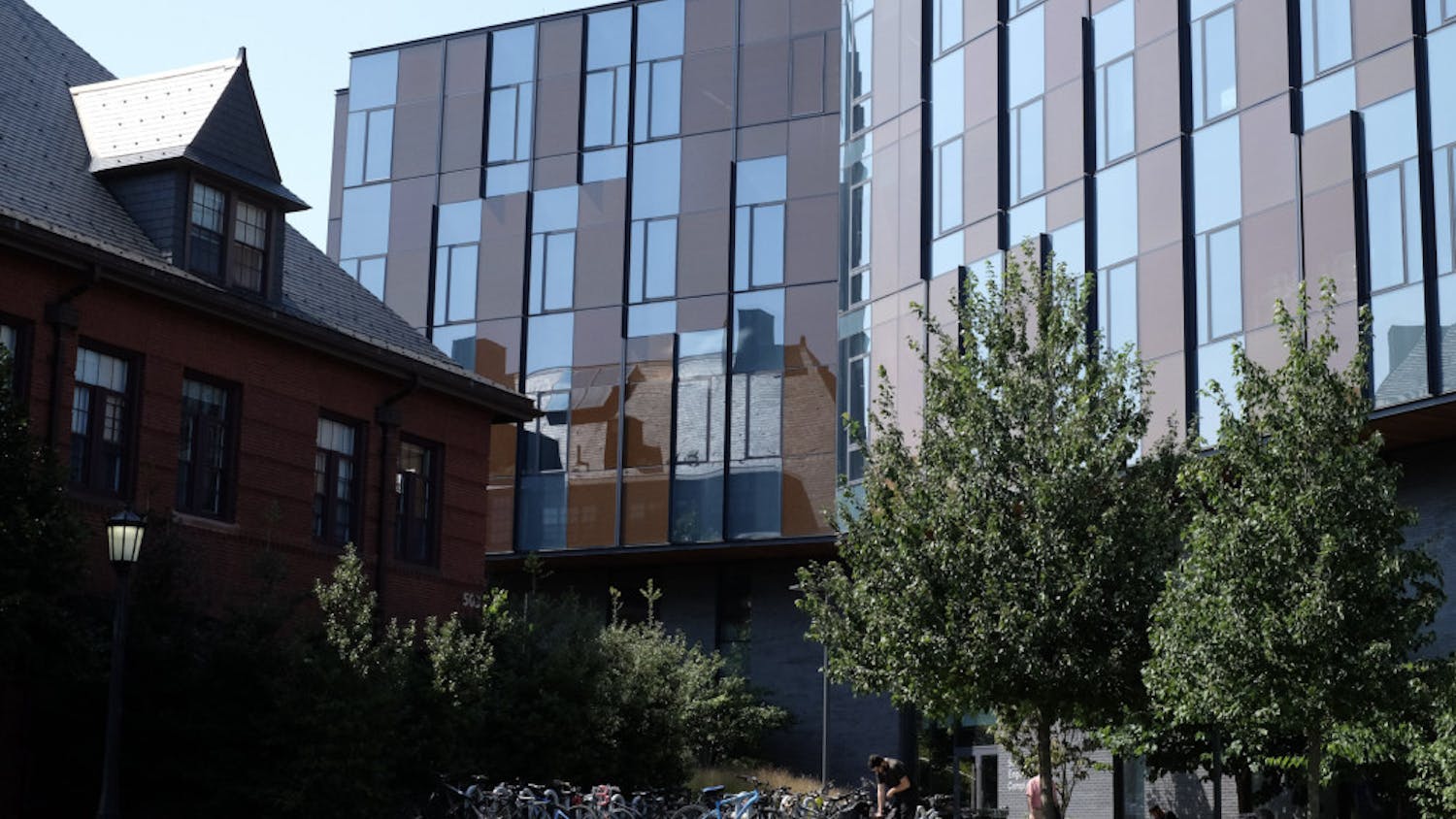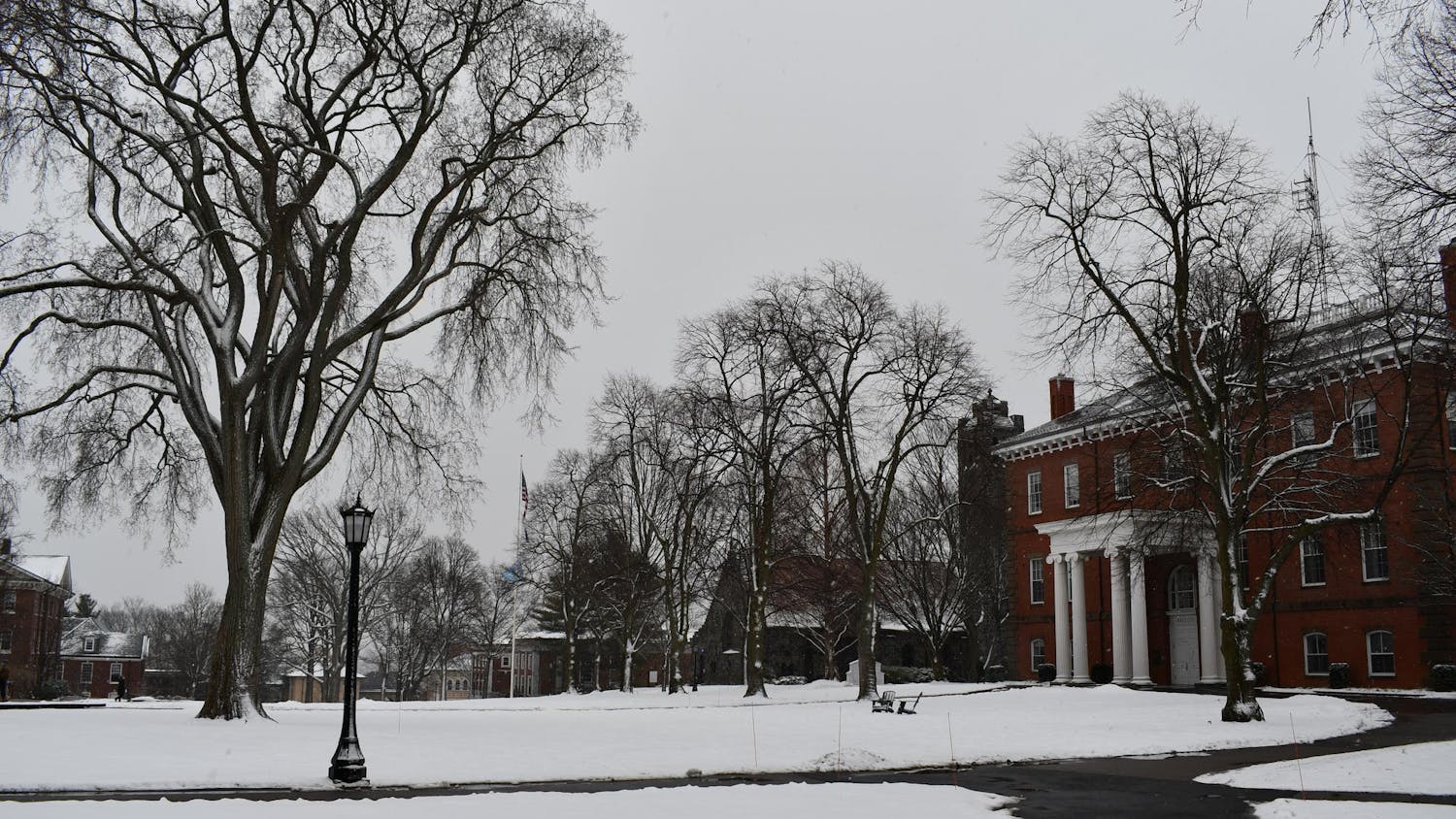Faculty for Arts and Sciences and Engineering (AS&E) passed a three-part resolution related to climate change during an all-faculty meeting in Ballou Hall during the afternoon of May 6. The resolution called for action on climate change — the first two proposals concerning divestment of the university's endowment from the fossil fuel industry and the third urging for a plan to reduce Tufts' carbon emissions by 80 percent by 2050.
An overwhelming majority of faculty members supported the resolution, with 47 out of 61 voting members voting in favor of the first two proposals, and 59 out of the 61 voting for the third proposal.
While the faculty vote does not necessitate any vote or action from the Board of Trustees on divestment, Executive Vice President Patricia Campbell said the administration will share the results with the Board, and added that the trustees are "deeply interested in the views of faculty," in a statement provided by Executive Director of Public Relations Kim Thurler. The university's Board of Trustees meeting will occur later this month.
The faculty resolution comes in the wake of a series of actions carried out over the past year by Tufts Climate Action (TCA) that began with a movement to occupy University President Anthony Monaco's office in April 2015. The push for divestment at Tufts began in fall 2012 when the group was called Tufts Divest for Our Future, according to members of TCA.
Monaco had stated during a 2014 announcement to the community that Tufts would not be divesting at the time, and that the university would initiate other sustainable infrastructure and financial changes. These initiatives include the Tufts Sustainability Fund — approved in November 2014 —which allows donors to exclude their contributions from investment in fossil fuels. In addition, the university will open a new Central Energy Plant in early 2017.
Preceding the vote at the meeting, TCA member Luke Sherman and sociology professor Paul Joseph presented arguments for divestment, emphasizing the importance of the university's leadership in pursuing climate justice.
Following their presentations, the body moved into a discussion, during which nearly a dozen faculty spoke about the resolution. The majority spoke in favor of the resolution and two spoke in opposition.
Chair of the Department of Economics Dan Richards, who specializes in industrial organization and merger analysis, was one of the faculty members who expressed dissent. Richards argued that divesting from fossil fuels, which accounts for less than two percent of the endowment, is a weak signal to send on committing to combatting climate change. He added that the practice, at worst, could be seen as hypocritical since some faculty would still be conducting research that is funded by fossil fuel companies.
On the other hand, several faculty members said that, although divestment is not a panacea to climate change, the university has a moral obligation to divest. Urban and Environmental Policy and Planning professor Julian Agyeman argued that the resolution is not just about climate change but about climate justice, saying that research shows that marginalized groups of people will be disproportionately affected by global changes.
"Climate change does not affect everyone equally," Agyeman told the Daily in an email. "Those in the U.S. and around the world who are least able to protect themselves, and have the lowest carbon footprints, are the first and worst affected. Seen this way, climate change is about climate justice. Divestment, while not a 'silver bullet', is, like divestment in the apartheid regime, an act of collective disapproval."
Following the discussion portion of the meeting, the body moved into a paper-ballot vote on the three resolutions.
The first part of the resolution, calling for a divestment from "fossil fuel holding in separately managed endowment funds" by the end of the 2016 - 2017 academic year, was passed with 47 in favor, 13 against and 1 abstaining. The second part, which asked the university to move to full divestment from all fossil fuel companies in the Tufts endowment with "proper consideration for the possible financial impact on the university," was passed with a vote of 47-13-1. Finally, the third part of the resolution, which asked Tufts to develop a "more deliberate, public Action Plan to place the university on track to reduce carbon emissions by 80 percent by 2050," was passed with a 59-1-1 vote.
Joseph said he was pleased with the results of the vote, noting that the overwhelming margin by which the resolutions passed is a good sign, since faculty often disagree on controversial issues.
"A greater than 75 percent vote is a clear and strong signal of the need to move away from business-as-usual and to place the university squarely in favor of making the transition away from dependency on the fossil fuel economy," he told the Daily in an email.
Of a potential Trustee vote on divestment, Joseph said he is "cautiously optimistic," adding that he is hoping to find a way to represent faculty opinion in a direct meeting with the Board of Trustees.
Sherman, a senior, said he was thrilled by the outcome of the vote.
"It's time that Tufts [demonstrate] real leadership on the issue of climate change by ceasing to finance an industry that is destroying the planet and disproportionately harming the most vulnerable members of society," he said in a Facebook message to the Daily.
Faculty pass resolution in favor of divestment of Tufts endowment from fossil fuel industry

Ballou Hall on May 5, 2016.





